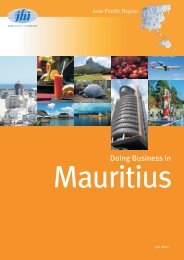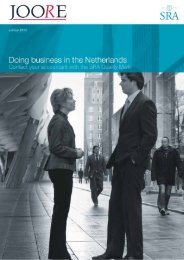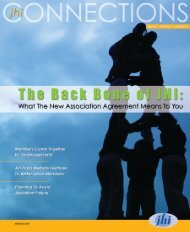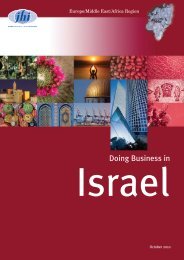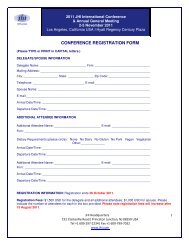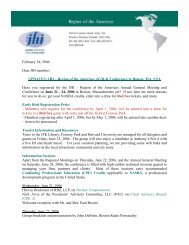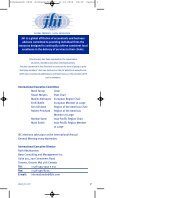Doing Business in - JHI
Doing Business in - JHI
Doing Business in - JHI
Create successful ePaper yourself
Turn your PDF publications into a flip-book with our unique Google optimized e-Paper software.
<strong>Do<strong>in</strong>g</strong> <strong>Bus<strong>in</strong>ess</strong> <strong>in</strong><br />
Liechtenste<strong>in</strong><br />
Key<br />
facts<br />
Population: 35,000<br />
Currency: CHF - Swiss<br />
franc<br />
Time zone: GMT<br />
Diall<strong>in</strong>g code: +423<br />
Language: German<br />
Fiscal year: 1 January -<br />
31 December<br />
<strong>Bus<strong>in</strong>ess</strong> hours:<br />
0800 - 1700 Monday to Friday<br />
History<br />
Liechtenste<strong>in</strong> comprises the former territories of the<br />
County of Vaduz (the Upper Country) and the Lordship of<br />
Schellenberg (the Lower Country). These were first<br />
united by <strong>in</strong>heritance <strong>in</strong> 1434 with the status of direct<br />
fiefs of the Holy Roman Empire. At the beg<strong>in</strong>n<strong>in</strong>g of the<br />
18th century, the two territories were purchased<br />
separately by Pr<strong>in</strong>ce Johan Adam Andrew of<br />
Liechtenste<strong>in</strong>, whose title was taken from Liechtenste<strong>in</strong><br />
Castle, a former family possession south of Vienna. In<br />
1719, the two territories were formally reunited as the<br />
Imperial Pr<strong>in</strong>cipality of Liechtenste<strong>in</strong>. Today the country<br />
is officially known as the Pr<strong>in</strong>cipality of Liechtenste<strong>in</strong><br />
(Fürstentum Liechtenste<strong>in</strong>).<br />
With<strong>in</strong> only a few decades, Liechtenste<strong>in</strong> developed <strong>in</strong>to<br />
a modern society with a surpris<strong>in</strong>gly diversified economy.<br />
Its highly specialised <strong>in</strong>dustrial firms are competitive<br />
throughout the world, and its trades occupy an important<br />
position <strong>in</strong> the region. The country has <strong>in</strong>creas<strong>in</strong>gly<br />
ga<strong>in</strong>ed <strong>in</strong>ternational recognition through its f<strong>in</strong>ancial<br />
services, banks and fiduciaries. Small states’ right to<br />
exist is often called <strong>in</strong>to question, and Liechtenste<strong>in</strong> has<br />
therefore jo<strong>in</strong>ed a number of <strong>in</strong>ternational organisations,<br />
<strong>in</strong>clud<strong>in</strong>g: International Court of Justices <strong>in</strong> The Hague<br />
(1950), OSCE (1975), Council of Europe (1978), UN (1990),<br />
EFTA (1991), EEA (1995) and WTO (1995).<br />
Be<strong>in</strong>g a poor agricultural country, the years after the<br />
Second World War were marked by an ongo<strong>in</strong>g boom.<br />
PAGE 4 |<br />
DOING BUSINESS IN LIECHTENSTEIN



